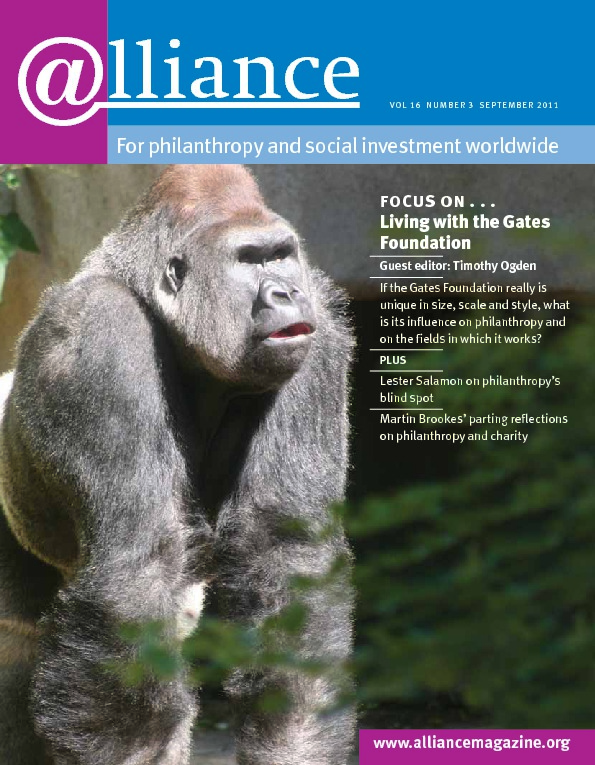‘Making philanthropy mainstream’ is one way I am often tempted to answer the question of what New Philanthropy Capital (NPC) is trying to achieve. I usually resist this temptation because it begs so many questions. But it is my private strapline for NPC.
At the heart of the problems facing charities in the UK is a serious disconnect between charities and the public. Falling numbers of donors, stagnant levels of donations (as a share of incomes) and low levels of giving by the rich (lower than their poorer counterparts) all show a lack of understanding of charities. Judging them by the amount of money they spend on overheads testifies to ignorance about how they work. The gulf between the public and charities needs to be overcome, and all sides bear responsibility for doing so.
I have lived my own version of this gulf through shifts in my career. After many years as an economist in the public and private sectors where I rarely encountered charities, I joined NPC. In NPC’s early days we sought to bridge the gap by providing high-quality information to wealthy donors on where and how to give. This required research into charities’ performance – research that was strikingly absent. Without such information, it is hard for donors to make informed choices, and easy to regard charities as too complicated to get your head around. Who has time to try to understand poor-quality, badly presented data?
Even when presented with better information, many potential donors did not appear to care. Charitable giving was just not part of their world. In the UK, we don’t like to talk about charitable giving. We don’t even like to acknowledge wealth. So philanthropists’ stories remain private, and powerful peer effects are suppressed. And no one wins. A sceptical attitude to wealth and the motivations of the wealthy reinforces this tendency to keep things private. Why go public about how much you give or how much pleasure it gives you if it will attract suspicion and criticism?
Things are improving though. More and more people are involved with philanthropy through organizations like NPC. None of these have yet reached maturity and all struggle with their business model, but they are determined. Their sheer number increases the chance of success. Philanthropy is entering into mainstream activities. Most private banks in the UK now have staff dedicated to philanthropy services and are able to get it on clients’ agendas. NPC is particularly interested in this field, which we believe offers promise.
The importance of evidence and impact is gaining traction. Slowly but surely, charities are recognizing the need to build up a better evidence base and engage donors in informed conversations about what they achieve.
The coalition government appears genuine in its desire both to engage with private donors and to promote giving. It recognizes that there is no silver bullet, but seems prepared to slog away to seek progress. These shifts can be summarized by saying that philanthropy is on the agenda like never before. That offers the promise of making philanthropy mainstream over time.
If I could wave a magic wand and wish for a few things to hasten the shift, I would start by asking that charities get better at engaging the wealthy. Progress here is too slow. Even very good charities with great evidence find it difficult.
Second, I would ban people from saying that charities need to get more businesslike. They do not. They might need to get more professional, but that is different. There is something patronizing and ignorant about the idea that charities should be more businesslike. It reinforces and reflects the gulf. Third, I would ask that society become less viscerally suspicious of and rude about wealthy donors. That is not the way to encourage giving.
Fourth, I would want large companies to make a greater effort to use the workplace to promote giving. Investment banks would be a good place to start – because, to echo the American bank robber Willie Sutton when asked why he robbed banks, ‘that is where the money is’.
From a personal perspective, I am leaving the field of philanthropy to return to financial services. Several people in the sector have greeted this as if I was retiring and disappearing from view. But a world view in which philanthropy was mainstream would deny hard boundaries between sectors. An interest in and a commitment to philanthropy would continue whether one worked in the industry or elsewhere in the economy. I hope to remain active in the field from my new vantage point. Inevitably, though, others will be doing more heavy lifting than me. I wish them well.
Martin Brookes is outgoing chief executive of NPC.


Comments (0)